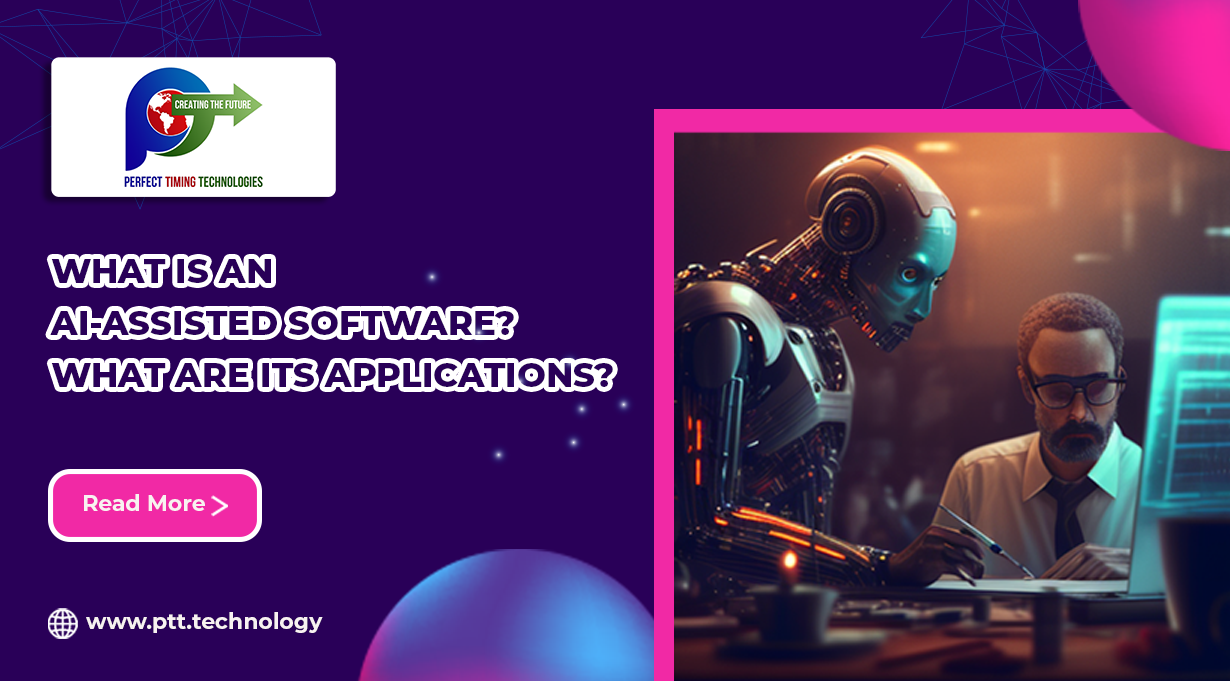
Today, we will touch upon a recent evolution in software development – AI-assisted software. Let us begin by defining the term.
What is an AI-assisted Software?
AI-assisted software is a software application that incorporates artificial intelligence technologies to enhance and augment its capabilities. In Digital transformation has come a long way post-pandemic. Businesses are taking crucial steps and implementing technological solutions to flourish their operations. Software development has gained popularity as more companies utilize this tool to enhance user experience and enable future business growth.
these types of software, AI provides various forms of assistance, such as automation, data analysis, decision-making support, and user interaction.
AI-assisted software leverages the capabilities of artificial intelligence to enhance and optimize various aspects of software applications, making them more efficient, intelligent, and user-friendly. It is well-suited for tasks that involve a high degree of complexity, such as natural language understanding, image recognition, and simulations.
AI-assisted software can scale to handle large volumes of data, transactions, or interactions, ensuring smooth operations as a business grows.
Applications of AI into Software Development
Artificial Intelligence can enhance the capabilities of the software that uses it. Let us now discuss how AI gets integrated into the software.
- Automation: AI can automate repetitive tasks that would otherwise require manual intervention. For example, AI-assisted customer support software might use natural language processing (NLP) to understand and respond to customer inquiries without human intervention.
- Data Analysis: AI can analyze large datasets quickly and identify patterns, trends, and insights that might be difficult for humans to spot. It is usually found in business intelligence software and data analytics tools.
- Predictive Analytics: AI can predict future outcomes based on historical data. In finance, AI-assisted trading software can analyze market data and predict potential stock price movements.
- Personalization: AI can tailor software experiences to individual users based on their preferences, behaviours, and past interactions.
- Natural Language Processing: AI-powered software can understand and generate human language. Chatbots and virtual assistants are examples of AI-assisted software that can engage in natural language conversations with users.
- Image and Video Analysis: AI can analyze images and videos to recognize objects, faces, emotions, and other features. It is used in various applications like facial recognition, content moderation, and medical imaging.
- Decision Support: AI can provide insights and suggestions to assist human decision-makers. For instance, AI-assisted medical diagnosis software can help doctors by providing potential diagnoses based on patient symptoms and medical history.
- Creativity Enhancement: AI can assist in creative tasks, such as generating artwork, music, or writing. For example, AI-assisted content generation tools can help writers by suggesting sentence structures or entire paragraphs.
Final Thoughts
While AI-assisted software offers significant benefits, there are challenges and considerations, such as ethical concerns, data privacy, and the need for skilled personnel to develop, maintain, and oversee AI systems. Careful planning and responsible implementation are essential in bringing out the potential benefits of AI in software applications.
To avail the best software solutions for your business, contact us. We deliver the best technology solutions and expert consultancy in town.







